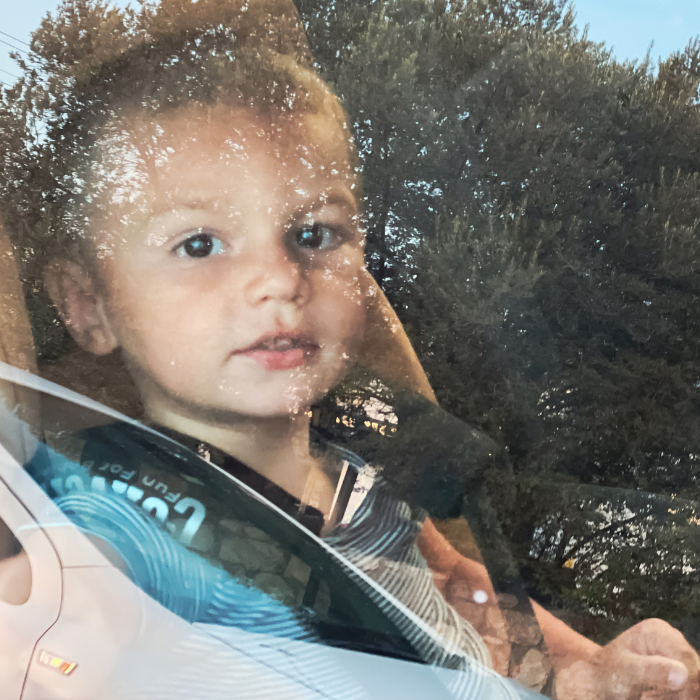
Baby blues or thyroid trouble Could your exhaustion during baby’s first year actually be problems with your thyroid? Here are some often unexpected signs to look out for
why am i exhausted?
When you were pregnant, you read all the baby advice, so you knew what to expect: sleepless nights, tiredness, difficulty rolling out of bed in the morning. You also know that post-partum depression may set in during the first few months, so you’re extra-vigilant for any sign of baby-blues.
But just when things are supposed to get better around the 3–4 month mark, you start feeling even more exhausted. You can’t understand why: after all, the baby is finally sleeping through the night (this may only mean from midnight to 5.30am, but it’s a huge improvement on the way things used to be), they’ve settled into their daytime nap rhythm, and yet you feel barely able to lift your finger to check the messages on your phone, while a trip to the kitchen for a cup of coffee feels as physically demanding as climbing Mount Everest.
Sure, you may be experiencing the cumulative effects of the lack of uninterrupted sleep. You may be feeling depressed. Or – and not many doctors think to tell you this – you may be suffering from thyroid problems.
what is the thyroid?
Your thyroid gland sits in your throat about halfway up your neck just below the voice box. Shaped like a butterfly, it is responsible for releasing hormones that tell your metabolism whether to slow down or speed up. Most of the time, the thyroid does its job and you’re not even aware of its existence. But things can go wrong.
over-active? under-active?
Signs of an under-active thyroid include: inexplicable weight gain, brittle hair and nails, feeling cold, pale skin, hoarse voice, tender, stiff and swollen joints, weak muscles, constipation, dry flaky skin and fatigue.
Signs of an over-active thyroid include: sweating, weight loss with normal eating patterns, irregular heartbeat, palpitations and, surprisingly, dry flaky skin and fatigue just as in the case of an under-active thyroid.
It’s not uncommon for the thyroid to become under-active about 4–8 months after you’ve given birth. Most women blame their fatigue on the many draining factors that constitute being a mother; but the truth is, parenting shouldn’t feel like you want to crawl into bed and never crawl out again, so if that sounds a bit like you, seek medical assistance.
what is postpartum thyroiditis?
Just to confuse the issue, you may also be suffering from postpartum thyroiditis: an inflammation of the thyroid that occurs in the first year after childbirth. It’s considered a variation of autoimmune thyroiditis and an estimated 7% of women develop this condition after pregnancy. The risks are higher for women with type 1 diabetes and women with a history of thyroid issues.
The symptoms may begin 2–6 months after delivery and they may resemble an under-active thyroid. Or they may begin 1–4 months after delivery and resemble an over-active thyroid. Because that’s really confusing, look out for these warning signs: decreased milk volume, hair loss, fatigue, enlarged thyroid gland, depression, mood swings. Postpartum thyroiditis is best diagnosed by blood tests, but do let the doctor know if you’re breastfeeding because some thyroid tests cannot be performed if so.
what the doctor can do
Many people ignore their thyroid problems for fear of surgery. In reality, an operation is usually not necessary. To begin with, your GP will probably send you for blood tests. If you’re fatigued, they will probably run blood sugar tests and iron tests in addition to the thyroid tests. Depending on the results, they may refer you to a specialist, prescribe anti-inflammatory pills, prescribe a hormone treatment or explain why they believe it’s best to let the body re-balance the hormones on its own without the help of artificial supplements.
remember
Although many thyroid problems may resolve over time, there is a risk of continued thyroid disease if the symptoms are left untreated.
why else you may be tired
It doesn’t have to be your thyroid. Other medical reasons for new mothers feeling run down may include:
- too little iron
- abnormal blood-sugar levels
- bad quality sleep (eg, sleep apnoea, which makes you wake up many times during the night without you being aware of it)
- urinary tract infection (sometimes it can be painless, with fatigue the only symptom)
- depression
- glandular fever.
Of course, you could simply be not sleeping enough or not eating enough, particularly when breastfeeding. But, for both you and your baby’s sake, see a GP.
Thyroid during the pregnancy
Your thyroid can give you trouble during pregnancy, too. Talk to your midwife if you’re feeling restless, hyper, sweaty and have tremors (signs of an over-active thyroid) or feel fatigued, constipated and excessively cold (signs of an under-active thyroid).
[byline]
by Yvonne Walus
[/byline]








